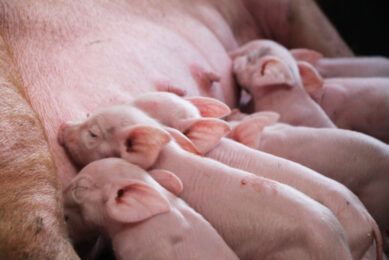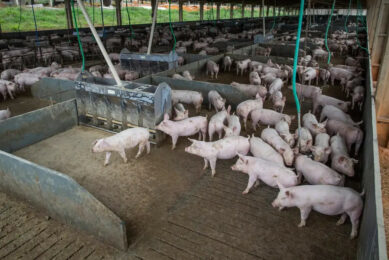Understanding culture matters in the pig industry

Last week, more than 2,000 delegates attended the ‘Svinekongres’, the annual congress for Danish pig production, organised by SEGES Pig Research Centre. Pig housing and welfare expert Vivi Aarestrup Moustsen noticed a strong emphasis on cultural issues on-farm.
Pig producers, their employees, representatives from industry, students and others with an interest in Danish pig production gathered to hear both the political presentations, the latest scientific results, experiences from Danish herds and pig herds abroad – and the talks about how to create a winning culture with your team. There is a lot of networking and impressions going on when so many people are together and there were more than 65 different presentations to choose from.
Many good stories from the Danish pig industry
My take-homes were: There are so many good stories; there is so much to be proud of, together we’re stronger, the value of ‘team spirit’ if you want to be successful – and: Danes are weird.
The take-home messages were ‘connected’: In the winning team, the differences in cultures are understood and acknowledged. It’s a team – where the conditions ensure that everyone always do their best, so together the team will ’win’, be proud – and be ambassadors for their job and trade.
This is both the case in the individual farrowing or finisher unit, at farm level, at company level, at national level and at international level.
A handball coach at a swine congress
The coach of a successful Danish handball team, Peter Bredsdorff-Larsen, asked the audience if in their work life everyone always did their best? His answer was ‘yes’, of course – they do their best given the conditions. No-one in the handball team enters the court to play a match without aiming at winning. The importance for the coach was to ensure that the players had the conditions to perform, so he was constantly focusing on any component he could manage and influence and ensuring that the expectations placed on employees and the teams tasks were explicit and known by all.
So where Peter Bredsdorff-Larsen explained the importance of a winning culture for a team to be successful, another presentation touching on culture was by Dennis Nørmark who introduced the audience to the onion culture consisting of the explicit outer layer of ‘objects and expressions’, the middle layer ‘norms’ and the implicit inner layer ‘values’.

The importance of common understanding
When we all come from the same country or background we know all that is used in our culture and don’t need to talk about it, because it’s so obvious. We don’t say we use metrics, we just do it. But if we collaborate with a company from the UK in for instance the design of a pen, and the UK company of course use imperial units and none of us mention which unit we’re using – the components will never fit. The importance of common understanding is essential for success. It’s no good if the surgeon removes a lung instead of a kidney.
In many herds, employees come from different countries and different cultures – and it’s very important for success to understand. Danes are used to ‘no news is good news’, so if the employee doesn’t say anything, the Danish employer will assume there are no problems. But the employee coming from a different culture doesn’t say anything because nobody is asking.
The Danes often ask everyone affected by a decision for input. Other cultures may consider this lack of decisiveness and expect the manager to give explicit orders.

Read more expert opinions in our special section at Pig Progress
Highly prolific sows in Denmark
The Danish pig industry is acknowledged for highly prolific sows and an efficient pig production. According to one speaker, Tom Axelgaard, Goodvalley, the development in productivity is partly founded in the impact of ownership, where most Danish farms are family farms (so have the same cultural background), and the owners themselves are or have been involved in the daily production, so have ownership and take pride in continuous positive development.
The next question is how do you ’carry over’ to employees – and employees from different cultures? A key is likely to know and understand their culture, what is important to them and for them to be proud of their job – and always do their very best, because they feel part of the winning team.
There is no doubt, we are stronger when we’re together. Sometimes together is nationally, sometimes on a European scale, sometimes an even broader scale.











